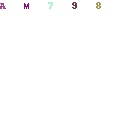Time to Go Organic?
What works better - organic search optimization (tweaking your web site so that you come out high on search engine results) or sponsored search (pay per click programs, like Google Adwords, where your message appears next to search results)?
ClickZ reports on a new study that indicates the two techniques produce similar results:
If you gathered the opinions of 100 paid search practitioners, and compared that to 100 organic search optimization experts, you'd find persuasive arguments for each method being superior at driving conversions. A new study from WebSideStory will justify the arguments of both sides.
The study looks at traffic and conversion data from 20 business-to-consumer e-commerce sites during the first eight months of 2006. Paid search had a median order conversion rate of 3.4 percent, while organic search results produced a conversion rate of 3.13 percent. The data set included more than 57 million search engine visits.
There are arguments to support both sides, Rand Schulman, WebSideStory's CMO, told ClickZ.
"On the one hand, because you control the message of paid search, you'd expect higher conversions. On the other side, because people value the 'editorial integrity' of organic, you'd expect higher conversions," he said. "Ultimately you need to do both. I think the eye-opener here is that neither side has a significant edge."
The findings match my own experience working with both kinds of search marketing. There's a credibility to organic search that sponsored search can't match; sponsored search, however, lets you get immediate results and lets you control exactly what you spend and where you appear.
Also, sponsored search self-selects for people who want to spend money:
There are many factors on both sides of the argument, which ultimately balance each other out, according to Dana Todd, executive VP of interactive agency SiteLab and president of the Search Engine Marketing Professionals Organization (SEMPO).
"Most visitors are not looking past the top three paid search ads, and the top three organic results. At that level of quality sites, you'd expect to see conversion rates that are close," she said.
In addition, organic search's higher volume of clicks, which tends to be 1.5 times higher than paid search volume, is balanced by the recognition by users that paid search ads are ads, which leads to a self-selection by users who have a commercial intent to their search, Todd said.
Bottom line: do both. But watch out for two common mistakes:
First, remember that organic search isn't a one-time effort. Too often, companies spend some time optimizing their sites, see the results, and stop. Keep monitoring your search results, because new sites are always appearing and everyone else is spending time optimizing their own sites, and if you don't stay on top of it, your results will drop off.
Second, make sure you (or anyone you pay to do search optimization for you) are using white hat, not black hat, techniques. There are a lot of ways to trick search engines; they'll give you some quick results, but if you're caught (and you probably will be eventually), you'll find yourself blacklisted from search engines. There are, unfortunately, a lot of consultants out there who promise great results by using these techniques; it's a risky approach and I don't recommend it.


0 Comments:
Post a Comment
<< Home